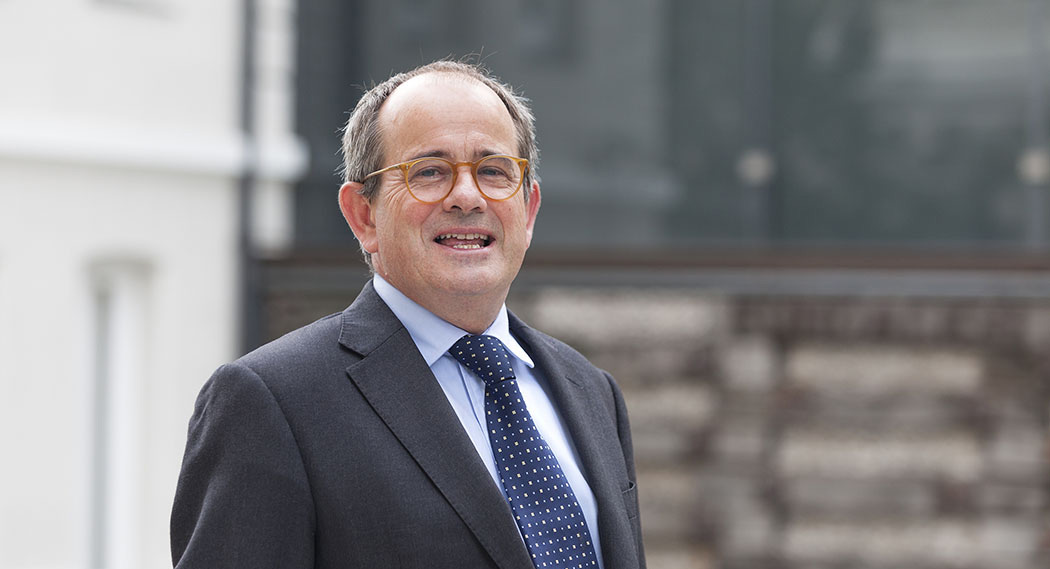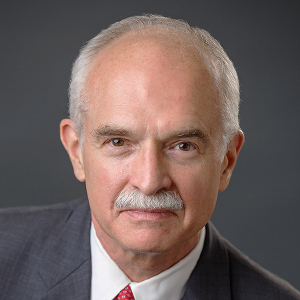I am quite honored to be a Juror for the 2017 Brock International Prize in Education, and I want to thank John Brock and Ed Harris for the privilege to be involved.
As a result, I am very pleased to nominate James N. Tooley, who is Professor of Education Policy and Director of the E.G. West Centre in the School of Education, Communication and Language Sciences at Newcastle University in England, one of the elite research-led “Russel Group” universities in the United Kingdom. His Ph.D. is from the Institute of Education at the University of London, and he has taught and researched at the University of Oxford, University of Manchester, Simon Fraser University, and the University of Western Cape, in South Africa. His first job incidentally was as a public school teacher in Zimbabwe, shortly after its independence from the United Kingdom, and he has committed his life to aiding the poorest children worldwide to receive a quality education.
Tooley is the foremost scholar around the world on advancing educational freedom and opportunity for the world’s poorest people. Through his ground-breaking research on low-cost private schools, his tenacious research-based advocacy, his innovative testing of models for raising the quality and accessibility of low-cost private schooling, Tooley has inspired and now leads a global movement that is celebrating and promoting educational opportunities in the developing world—a movement that carries direct implications for developed countries.
Prior to his innovative research, low-cost private schools were not even on the radar of any government, international agency, philanthropist, or investor; Tooley’s work has dramatically changed that. The Economist magazine has described him as the pioneer of research on low-cost private schools in poor countries; based on this research, he is an outspoken and eloquent champion for educational opportunity.
In a few minutes I will share a video presentation that tells the story of Tooley’s pioneering discoveries of the ubiquitousness of low-cost private schools in the slums and villages of the developing world, as well as his dedicated enterprise in extending quality, low-cost educational opportunities to many more of the world’s poorest.
Tooley has won many awards for his work, which has been featured in BBC and PBS documentaries, including in the film, The Ultimate Resource, with the work of Nobel Prize Laureate Muhammad Yunus and Friedman Prize-winner Hernando de Soto.
Building on his research, Tooley has dedicated himself to creating working models of innovative practice in low-cost private education.
Over the last quarter century, Tooley has published over 100 books, monographs, journal articles, and chapters in books on this theme. These works have included his bestselling book, The Beautiful Tree, which summarizes the research evidence, challenges critics of this work, and points to practical policy implications. The Beautiful Tree has been enormously influential worldwide. Since its publication, no one can now deny the existence and significance of educational freedom as a way towards “education for all.”
In a profile on Tooley, The Guardian strongly acknowledged the important influence he is having on international debates in education. It went on to say that, “Tooley . . . is charming, jolly and generous, and nobody who knows him doubts his sincerity and his genuine enthusiasm for . . . ‘low-cost private schools.’ Nor would anyone now seriously dispute the existence of such schools or even their frequent superiority to neighbouring state schools.” Furthermore, Tooley believes that countries such as Britain and the U.S. should learn from India, Ghana, Kenya and others.
Through his determined research-based advocacy, Tooley has succeeded in convincing international agencies and governments to change policies to take into account educational freedom as a means to improve educational access and quality.
Andrew Mitchell, former British Secretary of State for International Development, has credited Tooley’s work with positively impacting British government policy on education in developing countries, which has in turn helped improve educational opportunities for large numbers of poor children. Further, he credits Tooley with positively influencing British and international thinking on how to make ‘education for all’ a reality. Mitchell further cites Tooley’s research as providing the evidence making such policy change possible, including acceptance of policies supporting private alternatives.
His research has inspired, among other things, a voucher program in Pakistan which enabled hundreds of thousands of poor girls to attend low-fee private schools, and the £300 million Girls Education Challenge Fund, whose mission is to stimulate private providers to get up to a million girls into school in the most challenging locales.
Tooley’s work also heavily influenced the Lagos State Government and the British Department for International Development in Nigeria. Explicitly based on Tooley’s findings, the £25 million “Making Markets Work for the Poor” project was created and designed to further improve the workings of the low-cost private school market. The Association of Formidable Education Development (AFED) is a coalition of low-cost private schools in Lagos, with over 3,000 member schools, of which Tooley is a patron. Previously, the Lagos State Government set out to close all AFED schools. As officials there state, Tooley’s work “explicitly . . . led them to a change of heart” and led to the announcement in April 2013 that 600,000 children in AFED schools would be allowed to continue their education.
From denial to condemnation to active support: several governments and agencies have undergone this process as a direct result of Tooley’s work. Furthermore, Tooley has inspired numerous philanthropists and social entrepreneurs to get involved in promoting the cause of educational freedom for the poor, attracting at least $350 million into this space in the last five years.
For instance, Edify has made loans to over 600 schools in the Dominican Republic, Ghana, and Rwanda, and will grow to finance 4,000 schools, impacting 1 million children, by 2017. Chris Crane, Edify President and CEO, writes: “Prof. James Tooley . . . [is] directly responsible for Edify and Opportunity International providing loans and other education resources to low-cost private schools between 2008 and 2013.” Indeed, “Prof. Tooley directly inspired my life’s work. As a result, I believe that, over the next 20 years, 20 million impoverished children will receive a much better education than otherwise would have been possible.”
Similarly, Gray Matters Capital (GMC) created the Indian School Finance Company to make loans to low-cost private schools. It has disbursed $11 million to date, and increased loan capital to $140 million, explicitly inspired by Tooley. Bob Patillo, founder of GMC notes that Tooley’s research has “literally been life-changing.” GMC’s entire vision was shifted to focus on the affordable private-schools sector. Patillo credits Tooley’s research with changing “the entire focus of our visions, ambition and work.”
The IDP Foundation has also been inspired to change the direction of its work. The Foundation has currently invested $5 million in creating loans and program development for educational improvements in Ghana, impacting at least 27,000 children in 105 schools, with the aim of reaching 1,200 schools over the next 4 years. Irene Pritzker, President of the foundation, notes “The inspiration for all this work was the result of the findings and writings of James Tooley.”
To give you an idea of the scale of what Tooley is saying, here are estimated numbers of children being educated currently in low-cost private schools in poor countries, for which we have reliable data. The most studied areas are in sub-Saharan Africa and South Asia, but low-cost private schools have also been reported across Latin America, South-East Asia, China, the Middle East and North Africa, and Tooley has personally found them in each of these regions. The most researched area is in Lagos State and then other parts of Nigeria that have similar rates of enrollment to India, Pakistan and Bangladesh, and the rest of Sub-African Africa. As a result, Tooley’s work has found a minimum of 180 million children in such schools in these regions.
In the process, Professor Tooley is an indefatigable social entrepreneur himself, experimenting with different approaches to increasing the quality of and extending access to affordable, private schools, as the upcoming video will show.
Importantly, Tooley is keenly aware of the importance of ideas. He continues to contribute to educational scholarship, debating the case for educational freedom. His recent contributions on social justice and low-cost private schools for the poor have shown the relevance of low-cost private schools to educational needs in America.
Furthermore, Tooley’s most recent work is in conflict and post-conflict nations in Africa, including Liberia, Sierra Leone, and South Sudan, as well as northern Nigeria. He is not afraid of going to these very dangerous places to discover and extend low-cost private schools, advising governments there about how the poorest, if allowed, are successfully meeting and indeed surpassing educational needs. In each of these countries he has further created associations of low-cost private schools, to enable educational entrepreneurs to unite to better combat threats from harmful government policies and to share ideas and practices.
Since James Tooley is himself the most effective spokesman for his work, I’m pleased to now share with you this TEDx video from July 22nd, 2015.
Thank you!








